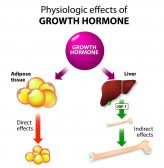Definition
noun
The lack or absence of symmetry
Supplement
In biology, the body plan of many organisms exhibit symmetry. Although the parts in a dividing plane or around an axis are not exactly the same, there is a significant correspondence in form, size, distribution, or arrangement of parts. Symmetry is observed particularly with regard to the external appearance of organisms. Bilateral organisms exhibit similarities between left and right sides. Radially symmetrical organisms have body plan in which every side is the same around an axis. In contrast, there are organisms lacking external symmetry and are described as asymmetrical. Some of the animals exhibiting asymmetry are flounders and hermit crabs. Adult flounders have both eyes on one side. Hermit crabs have a large claw on one side. In flowering plants, the thanksgiving cactus (Schlumbergera truncata) has irregular, asymmetrical flowers.
It should be noted though that many animals show asymmetry in their internal organs. For instance, the heart and the lungs of humans are asymmetrical. Asymmetry of many internal organs is essential for spatial arrangements.
Synonym(s):
- dissymmetry
Compare:
Related form(s):
- asymmetrical (adjective, of or relating to asymmetry; lacking symmetry or proportionality)
- asymmetry (adjective, of or relating to asymmetry; lacking symmetry or proportionality)







